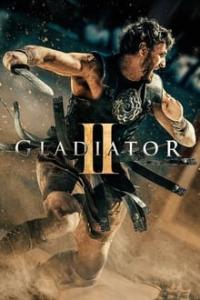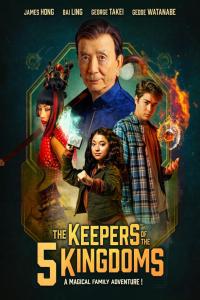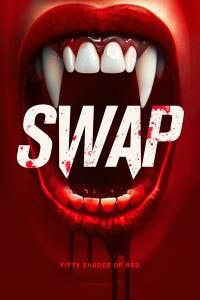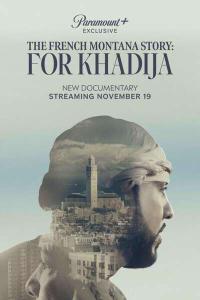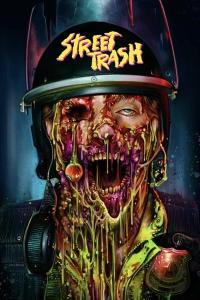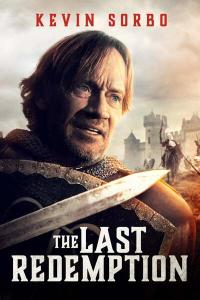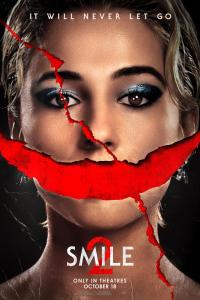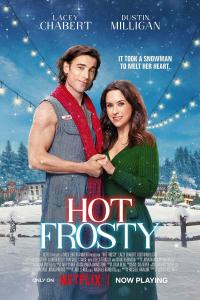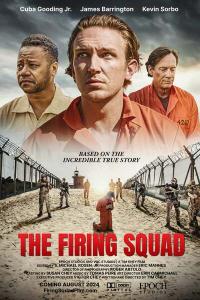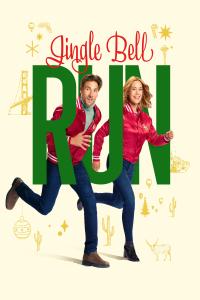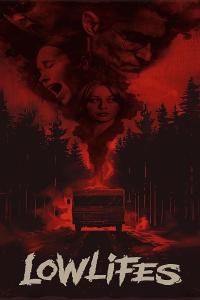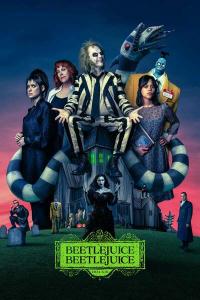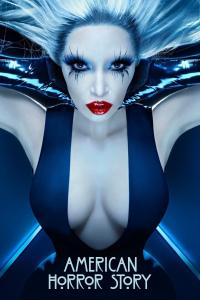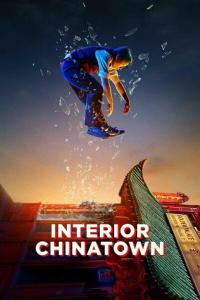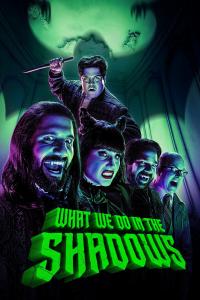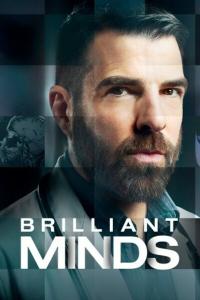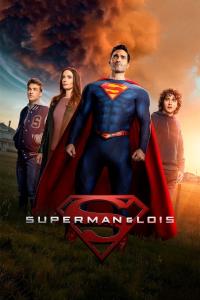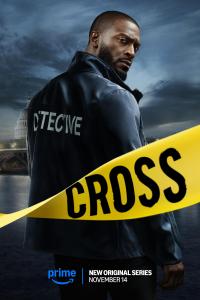Torrent details for "Art on the BBC S02 complete (1280x720p HD, 50fps, soft Eng subs) " Log in to bookmark
Controls:
Language:
 English
EnglishTotal Size:
8.56 GB
Info Hash:
6aeb1ba3b3f541aa9097419858819bd8506a4622
Added By:
Added:
25-01-2022 00:53
Views:
727
Health:

Seeds:
1
Leechers:
1
Completed:
7
Art on the BBC S02 complete (1280x720p HD, 50fps, soft Eng subs)
Art historians delve into six decades of the BBC archives. How has television influenced our understanding of the world's greatest artists?
E01 The Great Salvador Dali
Art historian David Dibosa examines six decades of BBC archive material to create a television history of Salvador Dali. Often called art's greatest showman and the world's first celebrity artist, Dali shamelessly used TV to promote his art and himself. Dali's striking, dreamlike images made his name synonymous with surrealism, and he shocked the world through film, fashion, sculpture and architecture. In this account, David hunts through dozens of BBC programmes to try to understand the real Salvador Dali, not just the more familiar eccentric show-off. Taking in films presented down the decades by Robert Hughes, Sister Wendy and Philippa Perry, David's rich dive into the archives, including Dali’s own films, reveals how our understanding of the artist has changed dramatically over the years. Whatever the era, Dali has always been important to programme makers – so much so that on BBC Four’s launch night in 2002, one of the broadcasts was a star-studded and surreal comic exploration of Dali's early career, featuring Stephen Fry, Matt Lucas and Ewen Bremner. David also delves into Dali's fractured relationship with the surrealists and his own family, and his life-long passion for his wife Gala, who was the engine behind his later career and helped him take America by storm.

E02 Van Gogh - Life and Art
Art historian Kate Bryan examines six decades of BBC archive to create a television history of the man who has become the embodiment of the ‘tortured artist’, Vincent Van Gogh. Van Gogh was 37 when he shot himself, but in the four years before he died, he painted some of the world’s most beloved works, using colour in ways that changed art forever. In this programme, Kate discovers that film-makers have found it impossible to separate Van Gogh's work from his life – from his fraught relationship with fellow artist Paul Gauguin, to the heartbreaking struggle with his mental health that ended in tragedy. In their efforts to understand Van Gogh’s complex psyche, and where his talent and extraordinary feeling for colour came from, programme makers have explored the French countryside, where his most famous works were painted, set off on detective trails to solve the mystery of his severed ear, and delved into his personal letters, casting some of the world's most remarkable actors – from Benedict Cumberbatch to Kirk Douglas – to bring his words and work to life. Drawing on archive broadcasts from Doctor Who to Simon Schama’s Power of Art, with contributions from experts and enthusiasts alike, from Jeremy Paxman to Andrew Graham-Dixon, Kate reveals how our interpretation of Van Gogh's work and his illness have undergone seismic changes through the decades.
E03 Monet - The French Revolutionary
Art historian Katy Hessel examines six decades of BBC archive to create a television history of Claude Monet. Monet is known as the father of impressionism, the movement that arguably kick-started modern western art. But his work has become so commercialised – used on everything from chocolate boxes to wastepaper bins – that most of us have little sense of how radical an artist he really was. Now, by delving deep in the BBC archives, Katy rediscovers Monet as an artist driven by a burning ambition to relentlessly reinvent his technique and reshape art again and again. Katy learns how Monet set impressionism alight, a movement that shocked and confused the public and critics alike, created his series paintings in an extraordinarily ambitious attempt to capture the nature of time, and would go on to influence America’s mid-century artistic revolutionaries such as Jackson Pollock. The subject of Monet has fascinated many of the BBC’s greatest programme-making talents. We meet Monet portrayed by Richard Armitage as a strapping, young firebrand thumbing his nose at the art establishment in a 2006 costume drama romp, while Andrew Graham-Dixon and Waldemar Januszczak investigate the unexpected and electrifying impact of the modern industrial world on an artist synonymous with pastoral poppy fields and idyllic river scenes. In contrast, Simon Schama opens up Monet’s story with a deep investigation of the dazzling influence of Japanese art on his work, while Robert Hughes takes us on a breathtaking journey through Monet’s extraordinary gardens at Giverny.
E04 Turner - Light and Landscape
Art historian Leslie Primo examines six decades of BBC archive to explore what makes JMW Turner such a beloved name in British art. Almost everyone has good things to say about Turner - after all, he’s responsible for some of Britain’s greatest artistic treasures, like The Fighting Temeraire, and Rain, Steam and Speed. But exactly what makes him great is where opinions can differ. Leslie discovers the TV art historians behind each theory. Was Turner great because he reinvented landscape painting, because he was a radical whose work marked the beginning of modern painting, or because he captured the extraordinary march of the industrial revolution? Through the archives, Leslie meets Fiona Bruce, Simon Schama, Andrew Graham-Dixon and Kenneth Clarke. Leslie also finds that the disputed nature of Turner’s brilliance has made for some entertaining film-making, from a frock-coat- and powdered-wig-loaded reconstruction of his humble origins as the son of a barber in London’s Covent Garden, to modern art historian Tim Marlow lashing himself to a mast in the middle of a choppy ocean to recreate Turner’s inspiration for Fishermen at Sea. Even if you think you know Turner, the programme reveals fascinating surprises about the complex man behind some of Britain’s most revered works of art.
First broadcast: January 2022
Duration: 1 hour per episode
Torrent dead? Request reseed at torrentgalaxy.org - or ask at elsonroa at tutanota.com
Art historians delve into six decades of the BBC archives. How has television influenced our understanding of the world's greatest artists?
E01 The Great Salvador Dali
Art historian David Dibosa examines six decades of BBC archive material to create a television history of Salvador Dali. Often called art's greatest showman and the world's first celebrity artist, Dali shamelessly used TV to promote his art and himself. Dali's striking, dreamlike images made his name synonymous with surrealism, and he shocked the world through film, fashion, sculpture and architecture. In this account, David hunts through dozens of BBC programmes to try to understand the real Salvador Dali, not just the more familiar eccentric show-off. Taking in films presented down the decades by Robert Hughes, Sister Wendy and Philippa Perry, David's rich dive into the archives, including Dali’s own films, reveals how our understanding of the artist has changed dramatically over the years. Whatever the era, Dali has always been important to programme makers – so much so that on BBC Four’s launch night in 2002, one of the broadcasts was a star-studded and surreal comic exploration of Dali's early career, featuring Stephen Fry, Matt Lucas and Ewen Bremner. David also delves into Dali's fractured relationship with the surrealists and his own family, and his life-long passion for his wife Gala, who was the engine behind his later career and helped him take America by storm.

E02 Van Gogh - Life and Art
Art historian Kate Bryan examines six decades of BBC archive to create a television history of the man who has become the embodiment of the ‘tortured artist’, Vincent Van Gogh. Van Gogh was 37 when he shot himself, but in the four years before he died, he painted some of the world’s most beloved works, using colour in ways that changed art forever. In this programme, Kate discovers that film-makers have found it impossible to separate Van Gogh's work from his life – from his fraught relationship with fellow artist Paul Gauguin, to the heartbreaking struggle with his mental health that ended in tragedy. In their efforts to understand Van Gogh’s complex psyche, and where his talent and extraordinary feeling for colour came from, programme makers have explored the French countryside, where his most famous works were painted, set off on detective trails to solve the mystery of his severed ear, and delved into his personal letters, casting some of the world's most remarkable actors – from Benedict Cumberbatch to Kirk Douglas – to bring his words and work to life. Drawing on archive broadcasts from Doctor Who to Simon Schama’s Power of Art, with contributions from experts and enthusiasts alike, from Jeremy Paxman to Andrew Graham-Dixon, Kate reveals how our interpretation of Van Gogh's work and his illness have undergone seismic changes through the decades.
E03 Monet - The French Revolutionary
Art historian Katy Hessel examines six decades of BBC archive to create a television history of Claude Monet. Monet is known as the father of impressionism, the movement that arguably kick-started modern western art. But his work has become so commercialised – used on everything from chocolate boxes to wastepaper bins – that most of us have little sense of how radical an artist he really was. Now, by delving deep in the BBC archives, Katy rediscovers Monet as an artist driven by a burning ambition to relentlessly reinvent his technique and reshape art again and again. Katy learns how Monet set impressionism alight, a movement that shocked and confused the public and critics alike, created his series paintings in an extraordinarily ambitious attempt to capture the nature of time, and would go on to influence America’s mid-century artistic revolutionaries such as Jackson Pollock. The subject of Monet has fascinated many of the BBC’s greatest programme-making talents. We meet Monet portrayed by Richard Armitage as a strapping, young firebrand thumbing his nose at the art establishment in a 2006 costume drama romp, while Andrew Graham-Dixon and Waldemar Januszczak investigate the unexpected and electrifying impact of the modern industrial world on an artist synonymous with pastoral poppy fields and idyllic river scenes. In contrast, Simon Schama opens up Monet’s story with a deep investigation of the dazzling influence of Japanese art on his work, while Robert Hughes takes us on a breathtaking journey through Monet’s extraordinary gardens at Giverny.
E04 Turner - Light and Landscape
Art historian Leslie Primo examines six decades of BBC archive to explore what makes JMW Turner such a beloved name in British art. Almost everyone has good things to say about Turner - after all, he’s responsible for some of Britain’s greatest artistic treasures, like The Fighting Temeraire, and Rain, Steam and Speed. But exactly what makes him great is where opinions can differ. Leslie discovers the TV art historians behind each theory. Was Turner great because he reinvented landscape painting, because he was a radical whose work marked the beginning of modern painting, or because he captured the extraordinary march of the industrial revolution? Through the archives, Leslie meets Fiona Bruce, Simon Schama, Andrew Graham-Dixon and Kenneth Clarke. Leslie also finds that the disputed nature of Turner’s brilliance has made for some entertaining film-making, from a frock-coat- and powdered-wig-loaded reconstruction of his humble origins as the son of a barber in London’s Covent Garden, to modern art historian Tim Marlow lashing himself to a mast in the middle of a choppy ocean to recreate Turner’s inspiration for Fishermen at Sea. Even if you think you know Turner, the programme reveals fascinating surprises about the complex man behind some of Britain’s most revered works of art.
First broadcast: January 2022
Duration: 1 hour per episode
Torrent dead? Request reseed at torrentgalaxy.org - or ask at elsonroa at tutanota.com


